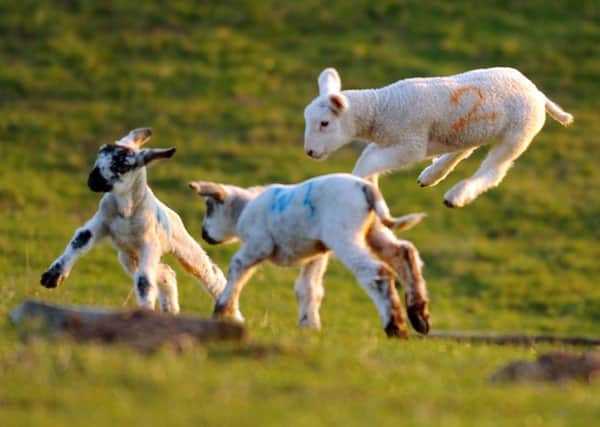Exports and Muslim festival boost hopes for lamb prices
This article contains affiliate links. We may earn a small commission on items purchased through this article, but that does not affect our editorial judgement.


In his view of the market, Stuart Ashworth, head of economic services at Quality Meat Scotland, points out that the latest UK trade data indicates “significant growth” in UK sheepmeat exports this year.
• READ MORE: Farming news
Part of the reason for this is the weak pound but exports have also been helped by European prime lamb prices holding up about 3 to 4 per cent higher than last year.
Advertisement
Hide AdAdvertisement
Hide AdAshworth said: “Provisional figures show UK exports of sheepmeat in the second quarter of 2017 have climbed by around 25 per cent, compared to last year.
“Non-EU exports, which are mostly lower value cuts, have also grown but only make up around 7 per cent of all exports.”
As a result of the change in trade patterns and domestic production, the volume of sheepmeat on the UK market in the first half of 2017 fell around 7 per cent. Despite this, demand alone has not been strong enough to hold sheepmeat prices in the UK.
As for the international market, Ashworth noted that New Zealand is again struggling to make full use of its tariff rate quota with the EU, with deliveries in the first half of 2017 down 21 per cent on the year.
“UK trade data shows deliveries of New Zealand lamb down 23 per cent in the first half of 2017, although deliveries of fresh chilled product have seen a more modest decline of 17 per cent.
“Meanwhile, Beef & Lamb New Zealand [the QMS equivalent] have released their estimates of the size of the current New Zealand breeding flock, showing a fall of 0.9 per cent. Nevertheless, because of improved ewe and hogg condition, they are forecasting an increase of 1 per cent in their 2017-18 lamb crop.”
On the home market, the latest QMS analysis shows that, despite auction throughput rising seasonally, the proportion of heavy prime lambs, over 45kg liveweight, in the supply chain is higher than last year.
Advertisement
Hide AdAdvertisement
Hide Ad• READ MORE: Mixed messages as lamb prices fail to hit heights
“Analysts are waiting for results of the June census to give an indication of the size of the 2017 lamb crop, although the expectation remains that it will be at least as big as last year.”
The market can be sensitive to volume and Muslim festivals and the next key event is the end of the Hajj on 1 to 4 September.
“Last year this festival began on 10 September and in the week running up to it prime lamb prices saw a lift of 13p/kg liveweight in the auctions,” he said.
Advice group has still not held talks
Some ten weeks after the Scottish Government announced the formation of a National Council of Rural Advisers (NCRA) to advise on farm policy, it turns out there has been no formal meeting of the group.
A Government spokesperson confirmed that the group, along with Women in Agriculture and the Fruit & Vegetable Leadership Group, will not meet until mid-September.
While there has been engagement with members over the summer in preparation of these meetings, no formal discussions are known to have taken place.
In making the announcement about the NCRA at the Highland Show, rural economy minister Fergus Ewing said it would provide advice on farm policy and, in response to a query at the time, this would include farm policy after Brexit.
Advertisement
Hide AdAdvertisement
Hide AdDespite the clock ticking towards the March 2019 deadline, no meeting has taken place and no agenda has, it is believed, been issued for such a meeting.
However, more progress appears to being made with the four Agricultural Champions who were appointed in January by the Scottish Government.
The four are former banker Henry Graham, who was given the education and training portfolio; former NFUS president John Kinnaird, who was asked to provide information on sustainability; Archie Gibson, the chair of the Scottish Food & Drink Federation, who was asked to look after that sector; and Marion McCormick, Aldi’s buying director, whose remit was public value.
It is believed they are pulling their separate recommendations together with a view to publishing a joint paper in October.